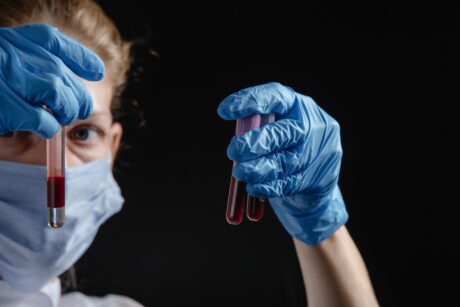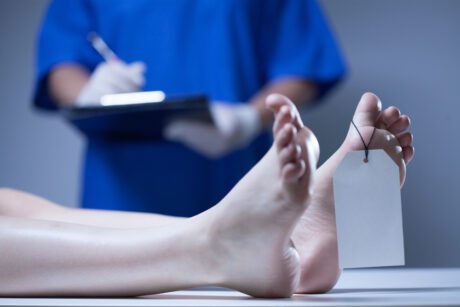No products in the basket.
The Role of the Nurse in Forensic Investigations
As healthcare professionals, nurses play an important role in the field of forensic nursing. By taking this Forensic Nursing Course, you will learn about the growing field of forensic nursing. Also, this course will teach you the various duties that a nurse may take on in forensic investigations. This course will teach you how to work with forensic evidence and how to provide care for patients who may be involved in a criminal matter. By learning the role of the nurse in forensic investigations you can be better prepared to care for patients in this sensitive and demanding field.
What is forensic nursing?
Forensic nursing is a type of healthcare that helps medical professionals to provide care for people who have been arrested or are in court proceedings. Nurses are instrumental in ensuring the quality of care provided to patients by –
- Helping to maintain communication between different parts of the health system, and
- Providing support during examinations, investigations, and discussions with the courts.
Nurses play an important role in forensic investigations. For example:
- Ensuring the quality of care provided to patients, and
- Helping to provide a sense of continuity and
- Security for patients who are often vulnerable and have experienced a traumatic event.
How to become a Forensic Nursing?
Forensic nurses play an essential role in forensic investigations. By providing care and support to victims and witnesses, they help to ensure that justice is served. To become a forensic nurse, there are many opportunities available for forensic nurses throughout the United Kingdom.
Forensic nurses work closely with law enforcement officers, specialists, and other health professionals to provide the best possible care for those involved in crime scenes. As a forensic nurse, you will be part of a team that ensures that justice is done. So, what are waiting for? Register today our exclusively designed Forensic nursing course.
What are the main duties of a Forensic Nurse?
Nurses play a vital role in forensic investigations. Not only do they have a thorough knowledge of forensics, but they also help with the collection of evidence and the emotional support of victims and witnesses. As forensic nursing becomes more specialized, nurses will continue to play an important role in investigations.
The Role of the Nurse in Forensic Investigations
Forensic nurses are a valuable asset to law enforcement and the judicial system. Their skills and experience in forensic nursing make them an essential part of investigations and the prosecution of crimes. Nurses play a critical role in both the investigation and prosecution of crimes, from assessing injuries to developing treatment plans. They also provide expert testimony in court, helping to attorneys win cases. If you’re interested in a career in forensic nursing, register our online forensic nursing course. Start to learn as much as you can and keep up with the latest developments in the field. With your skills and experience, you can make a difference in the lives of others.
Ethical Considerations for Nurses in Forensic Investigations
As nurses work in a forensic environment, it is important that they are aware of their ethical obligations. Every nurse has a duty to comply with all applicable laws and regulations while working in a forensic environment. This includes –
- Abiding by the privacy of victims and witnesses, and
- Maintaining the confidentiality of information gathered during investigations.
In order to effectively provide care to victims and witnesses, all nurses should receive education on how to appropriately conduct forensic investigations. By being aware of their own ethical obligations, nurses can help ensure that forensic investigations are conducted in a sensitive and respectful manner.
Frequently Asked Questions
-
Are there any hazards specific to forensic nursing investigations that I need to be aware of?
Yes, there are particular hazards that nursing investigations involve that you should be aware of. Here are a few: –
-
- Nurses should take proper precautions to avoid getting sick while working in forensic environments. This means wearing appropriate protective gear and washing your hands often.
- Eye contact with patients and exposure to bacteria can both be hazards for nurses in forensic investigations. So, always be careful when making direct eye contact with patients or coming into close contact with any kind of bacteria.
- Nursing investigations may involve handling blood, urine, feces and other potentially harmful substances. Make sure to wear gloves and a facemask when handling these materials. Also, avoid coming into contact with them directly if at all possible.
-
What are some common infections that can occur while working in a forensic nursing setting?
There are many infections that can occur in a forensic setting, including
-
- Tuberculosis
- MRSA (methicillin-resistant Staphylococcus aureus), and
- Listeria
Nurses who work in forensic investigations are at an increased risk for these infections because of their close contact with the public. They need to be vigilant about taking precautions against these common pathogens and wear masks when working with corpses or body fluids.
-
What are some common evidences that a nurse may encounter during an investigation?
Nurses are familiar with the forensic process and their observations can play an important role in investigating a case. Some common evidences that nurses may find during an investigation include:
-
- Injury patterns,
- DNA samples,
- bloodstains on clothing or surfaces,
- Medications found near the scene, and
- Weapon evidence.
They are also familiar with the scene and can document any findings in a clear and concise way.
Conclusion
As a nurse working in forensic investigations, you will be dealing with sensitive and personal information. It is important that you are aware of the ethical considerations that come with this role and that you are able to handle sensitive information in a professional manner. If you are interested in learning more about becoming a Forensic Nurse, or if you have any questions about the role, please don’t hesitate to leave a comment below. We would love to hear from you!




